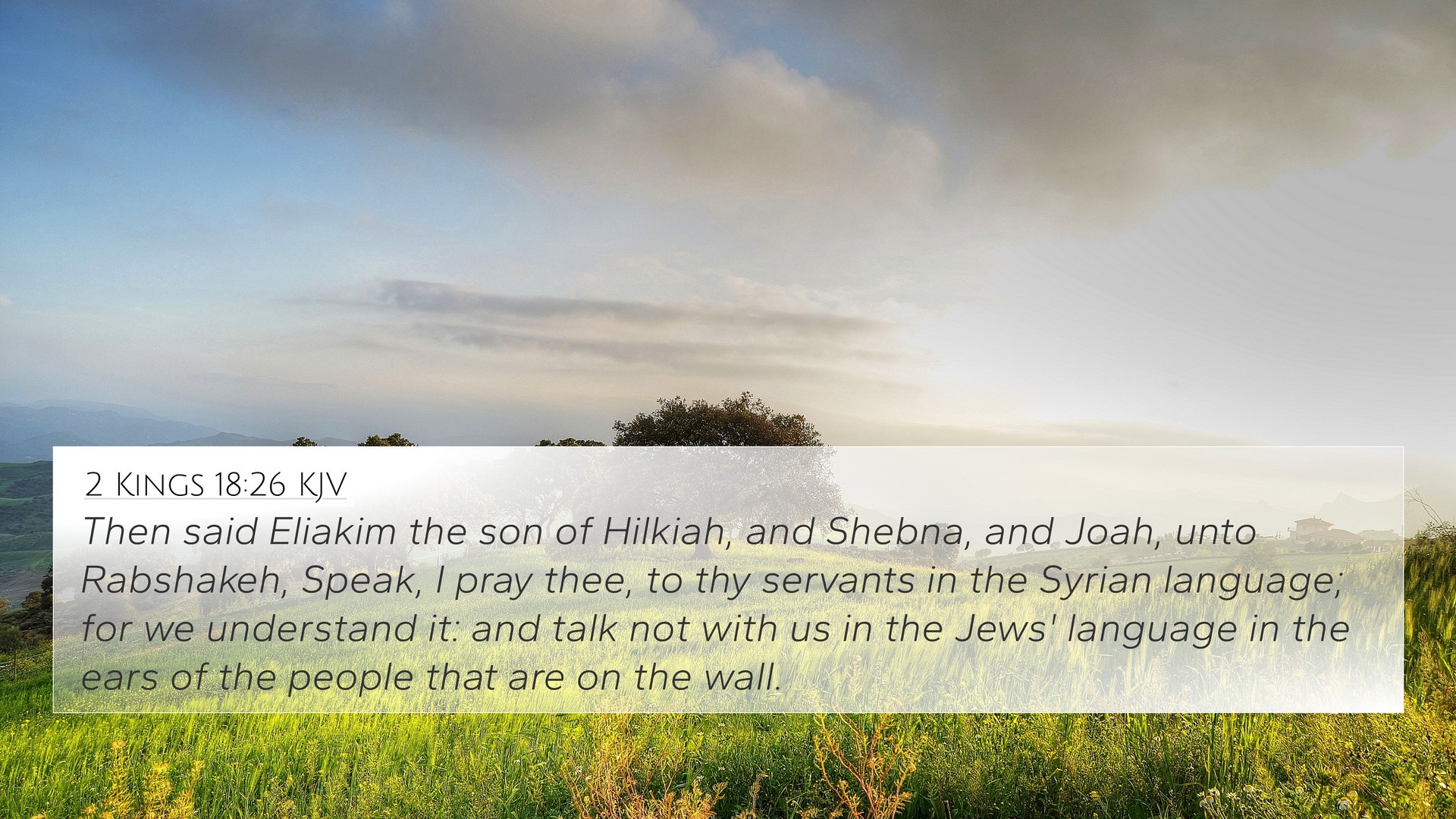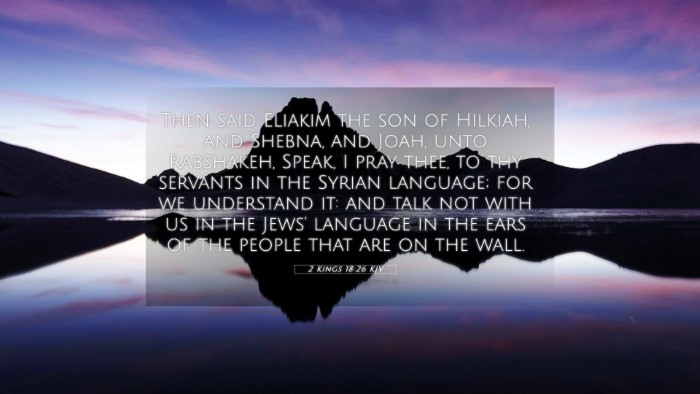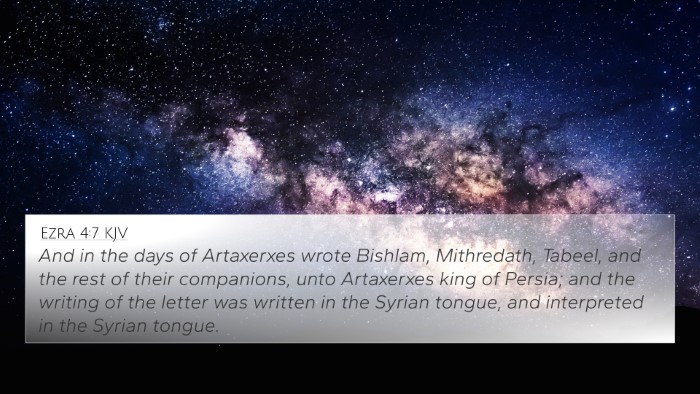Understanding 2 Kings 18:26
Verse Reference: 2 Kings 18:26
Verse Text: "Then said Eliakim the son of Hilkiah, and Shebna, and Joah, unto Rabshakeh, Speak, I pray thee, unto thy servants in the Syrian language; for we understand it: and talk not with us in the Jews' language in the ears of the people that are on the wall."
Context and Background
This verse occurs during the Assyrian siege of Jerusalem under King Hezekiah. The Assyrians, represented by Rabshakeh, sought to intimidate the city by speaking in the Hebrew language, intending to demoralize the inhabitants. Eliakim, Shebna, and Joah request that Rabshakeh speak in Aramaic instead, indicating their desire to protect the morale of the people.
Commentary Insights
Matthew Henry Commentary
Matthew Henry notes that this request shows the sensitivity of the leaders and their concern for the welfare of the people. It emphasizes the importance of communication; the distinction between languages becomes a tool for preserving hope among the people of Jerusalem.
Albert Barnes Commentary
Albert Barnes highlights that the leaders' request indicates a strategic approach to warfare, suggesting they aimed to prevent panic among those on the wall. He underlines the irony that those on the wall could hear the threats in their own language yet were simultaneously urged to avoid discussions that would lower their morale.
Adam Clarke Commentary
Adam Clarke expands on the sociopolitical undertones of the moment, noting that the Aramaic language was the diplomatic language of the time, hinting at a mix of fear and strategy. He posits that the leaders’ request reveals their awareness of how fear can influence a community's resolve during trying times.
Theological Significance
This verse illustrates the broader themes of communication, fear, and communal resolve in times of crisis. The leaders are acting in a capacity to shield the populace from despair, indicative of responsible leadership in Biblical narratives.
Related Bible Verses and Cross-References
- Isaiah 36:11 - "Then said Eliakim and Shebna and Joah unto Rabshakeh, Speak, I pray thee, unto thy servants in the Assyrian language..."
- 2 Chronicles 32:18 - "Then they cried with a loud voice in the Jews' language unto the people of Jerusalem..."
- Ezra 4:7 - "And in the days of Artaxerxes wrote Bishlam, and Mithredath, and Tabeel, and the rest of their companions..."
- Nehemiah 13:24 - "And their children spake half in the speech of Ashdod, and could not speak in the Jews' language..."
- Matthew 10:16 - "Behold, I send you forth as sheep in the midst of wolves: be ye therefore wise as serpents..."
- Philippians 1:27 - "Only let your conversation be as it becometh the gospel of Christ..."
- 1 Corinthians 14:10 - "There are, it may be, so many kinds of voices in the world, and none of them is without signification."
Cross-Referencing Insights
This verse is crucial for understanding the dynamics of language, communication, and both the individual and collective psyches during perilous times. The requests for speaking in Aramaic may reflect a common feature in the broader Biblical narrative where clarity and purpose are sought in divine and human interaction.
Thematic Connections
The themes here connect notably to:
- Language as a barrier or bridge in communication.
- Leadership responsibilities in times of crisis.
- Public morale and its influence on community resilience.
- Prophetic warnings and the need for discernment.
Tools for Cross-Referencing
For those looking to explore similar themes through cross-referencing, the following tools and methods are useful:
- Bible Concordance: Helpful for locating specific words throughout the scriptures.
- Cross-Reference Bible Study: Engaging in verse-by-verse analysis to explore thematic continuity.
- Bible Reference Resources: Comprehensive guides to understand context and parallels.
Conclusion
The narrative found in 2 Kings 18:26 leads us to a deeper understanding of communication and the weight of leaders' words in times of spiritual and physical warfare. By exploring the interconnections between related scriptures, we develop a cohesive perspective on how God communicates through His word and how humanity responds.






